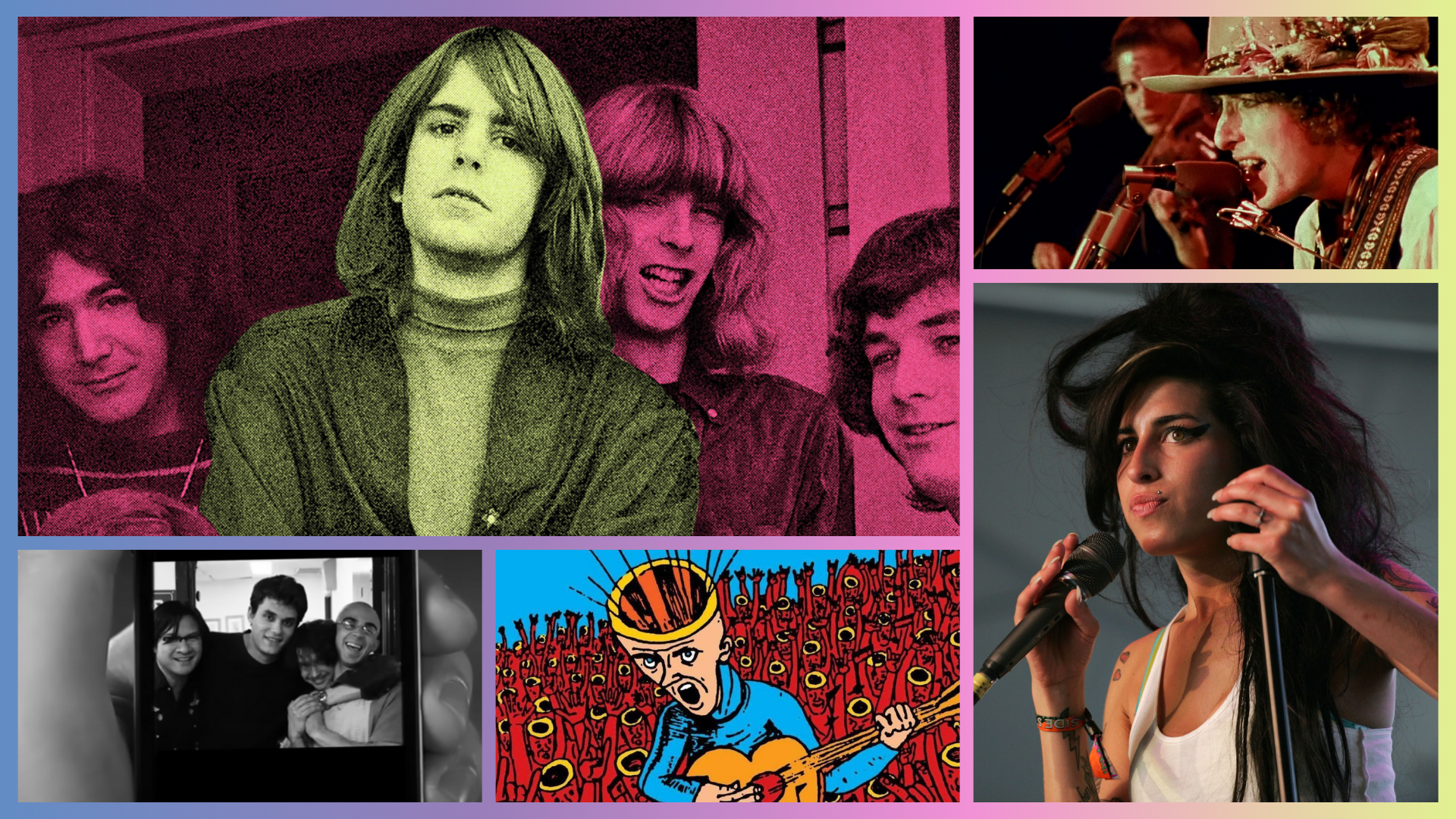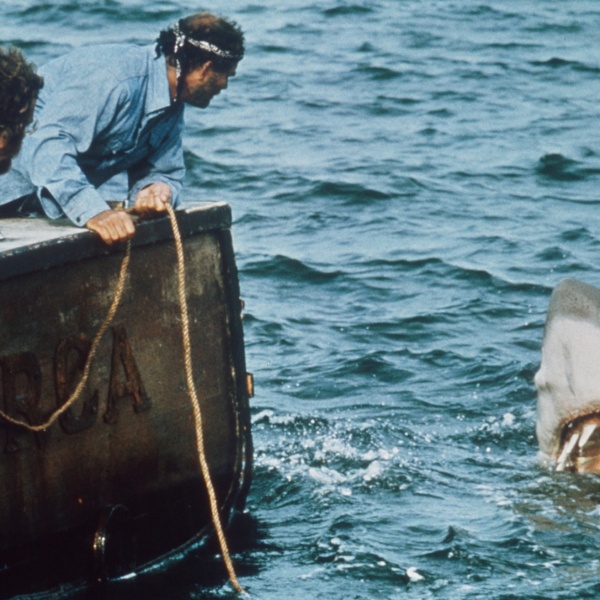With the possible exception of sports figures, no documentary subjects capture as much mainstream interest as musicians. While the film industry generally regards documentaries as a specialized genre with its relevance confined to award season, films about beloved musicians are capable of becoming box office juggernauts and cultural phenomena in their own right.
It’s not hard to see why, as music and filmmaking have always been inextricably linked. Great film scores and needle drops often give movies an extra level of emotional depth that no other art form could ever hope to match. And while live music is ephemeral by definition, filmed performances of great artists allow fleeting moments on stage to become permanently etched into pop culture.
Music documentaries can serve a variety of purposes, from highlighting unknown geniuses to exposing fans to previously unseen sides of world-famous rock stars. But the common denominator that links the genre’s best entries is the intersection of great music, unflinching honesty, and a filmmaker’s intuitive understanding of storytelling.
The 21st century has emerged as a particularly fertile era for great music documentaries. Part of that stems from the fact that many of the 20th century’s biggest stars have aged into the introspective phase of their careers and granted filmmakers unfettered freedom to tell the stories of their lives. Simultaneously, the democratization of filmmaking technology has made it easier than ever for filmmakers to document the brilliance of unknown artists and release their work for the entire world to experience. Music documentaries have become a lifeline for independent film distributors and a regular presence at the Oscars — two trends that don’t appear to be going away any time soon.
Ranking music documentaries is bound to be a subjective activity, as no mere mortal is capable of truly separating the films from their own personal music tastes. But the cream does gradually rise to the top, as the best music docss put their subjects in new light while reminding us why we loved them in the first place. From sprawling miniseries from Oscar-winning filmmakers to microbudget DIY projects that grew into viral successes, keep reading for our list of the best music documentaries of the 21st century (so far).
-
“Someday I’ll Fly” (dir. Eastwood Allen, 2014)

Image Credit: Getty Images for Love Rocks NYC/ One of the more impressive feats of DIY filmmaking in recent memory, Eastwood Allen’s “Someday I’ll Fly” is a rare case of a documentary becoming a definitive film about an artist without their participation. Consisting entirely of pre-existing footage of John Mayer, the film weaves a nuanced tapestry of a man who is simultaneously the most talented rock musician of his generation and an attention-loving troll whose stupid mouth kept getting him in trouble. The film masterfully captures the duality of Mayer’s ability to be the last of a dying breed of rock star and his longtime struggle to escape the mold of pop success. Despite his lack of involvement in the film, Mayer embraced it wholeheartedly and helped fuel its viral success.
-
“The Defiant Ones” (2017)

Image Credit: Getty Images Few creative or business partnerships have shaped the music industry over the past century more than that of Dr. Dre and Jimmy Iovine. Allen Hughes’ four-part HBO miniseries “The Defiant Ones” dives into the relationship that shaped virtually every major contemporary rap act to emerge from the West Coast — but it doesn’t require any knowledge of or interest in music to enjoy it. The series is really about what makes great collaborations work, exploring how two partners reached the top by embracing their differences and never being too afraid to evolve.
-
“Searching for Sugar Man” (dir. Malik Bendjelloul, 2012)

Image Credit: ©Sony Pictures/Courtesy Everett Collection As the world mourns the death of Sixto Rodriguez, Malik Bendjelloul’s Oscar-winning documentary about his rise to fame, plunge into obscurity, and eventual re-emergence as an anti-apartheid icon feels even more essential than it did upon its initial release. The film’s depiction of Rodriguez as a forgotten musician who enjoyed massive success halfway around the world without his knowledge is a testament to the idea that fame and talent are not nearly as intertwined as we like to delude ourselves into believing. “Searching for Sugar Man” is a beacon of hope for those of us who still like to think that great art will always find an audience, even if it often takes much, much longer than we’d like. The fact that it launched a career resurgence that Rodriguez enjoyed for the remainder of his life makes it one of the few music documentaries to truly influence the industry that it documents.
-
“The Devil and Daniel Johnston” (dir. Jeff Feuerzeig, 2005)

Image Credit: Getty Images In the eyes of countless music fans, Daniel Johnston is the ultimate embodiment of the idea that creative genius can emerge from anywhere. Despite being diagnosed with severe schizophrenia and bipolar disorder that made it difficult for him to leave the house, Johnston amassed a cult following for his lo-fi recordings of whimsically poignant songs like “Life in Vain” and “True Love Will Find You in the End.” He remained a prolific songwriter and artist throughout his life, even as the same untapped brilliance fueled a downward mental health spiral that ultimately killed him. Jeff Feuerzeig’s documentary “The Devil and Daniel Johnston” is both a perfect primer on Johnston’s artistry that inspired countless indie musicians and an exploration of the costs of creativity and the dangers of idealizing the concept of “mad genius.” Simply put, it’s the tribute that Johnston deserved.
-
“Long Strange Trip” (dir. Amir Bar-Lev, 2017)

Image Credit: Getty Images The rise and fall of Jerry Garcia and the Grateful Dead is a modern Shakespearean tragedy. What began as a group of friends jamming in San Francisco quickly became the music of the counterculture and, eventually, one of the biggest acts in American pop culture thanks to the distinct musical identities and collaborative ethos of Garcia, Bob Weir, Phil Lesh, Bill Kreutzmann, Mickey Hart, and a revolving door of elite keyboardists. But as the excesses of the 1980s turned the band into a multi-million dollar business, the same free spiritedness that made them famous ultimately plunged them into a pit of drugs and greed that led to Garcia’s tragic death. Amir Bar-Lev’s “Long Strange Trip” tells the epic story at the scale that it deserves, capturing the lightning in the Dead’s music that struck so many hearts while refusing to shy away from the bleak circumstances that led to their breakup in 1995. It’s a rare rock documentary that never allows nostalgia to get in the way of its exploration of its protagonists as the tragic heroes they were.
-
“The Beatles: Get Back” (dir. Peter Jackson, 2021)

Image Credit: Apple Corps. Ltd. The Beatles have been the subject of endless movies of both the scripted and non-fiction varieties over the years, so anyone would have been forgiven in 2021 for thinking there was nothing left for filmmakers to say about the beloved rock band. Peter Jackson disagreed, and his meticulous approach to documenting the group’s final weeks was for everybody’s gain. Treating footage from rehearsals for the band’s final performance with the same seriousness he gave to his WWII documentary “They Shall Not Grow Old,” Jackson was able to make the definitive portrait of the breakup that brought the 1960s to an end. His eight-hour documentary captures the clashing personalities that made it impossible for the band to continue — along with the genius that made them legends in the first place.
-
“Amy” (dir. Asif Kapadia, 2015)

Image Credit: Courtesy Everett Collection Amy Winehouse’s tragic death at the age of 27 placed her in a morbid category of artists destined to live forever without aging in the eyes of their fans. That cultural immortality makes it difficult to offer nuanced portraits of the late artist, as even her admirers are often tempted to deify her for her artistic achievements while infantilizing her for her struggles. Fortunately, Asif Kapadia’s “Amy” does neither. The Oscar-winning documentary dives beneath the splashy tabloid headlines and the sepia-hued obituaries to paint a judgement-free portrait of an endlessly talented artist who could never overcome her own demons. It’s a complete story about the price of creativity that’s will live on for as long as the woman who inspired it.
-
“Rolling Thunder Revue” (dir. Martin Scorsese, 2019)

Image Credit: Netflix/Courtesy Everett Collection After the success of their initial collaboration on “No Direction Home,” Martin Scorsese and Bob Dylan spent years working on a documentary about Dylan’s Rolling Thunder Revue. The legendary 1975 tour saw a newly-divorced Dylan hitting the road for the first time in years, donning clown makeup to perform rollicking new arrangements of his most beloved songs alongside a murderer’s row of friends from the folk scene that he hadn’t performed with since going electric. While Dylan obsessives had long considered the tour to be a creative high point (in a career full of them), Scorsese and Dylan never found a way to make a conventional documentary seem compelling.
Fortunately, what they came up with was much more interesting. The meta-documentary “Rolling Thunder Revue” contains an intoxicating mix of truth and lies, telling the overarching true story of the tour with real concert footage alongside blatantly fictional talking head interviews. Everything is fair game, from then-Paramount CEO Jim Gianopulos using a fake name to pose as a former roadie to Michael Murphy reprising his role from Robert Altman’s “Tanner ’88.” The dishonesty is par for the course given Dylan’s lifelong love of lying to the press, his fans, and — if his lyrics about his own struggles are to be believed — himself. But the film also speaks to why Dylan has remained such a captivating cultural figure for so many decades. His constant willingness to hide the truth and reinvent himself allows everyone to project whatever they need to see onto his undeniable genius. Much like the Rolling Thunder tour itself, Scorsese’s documentary understands that you can’t tell the real truth until you put on a mask.




